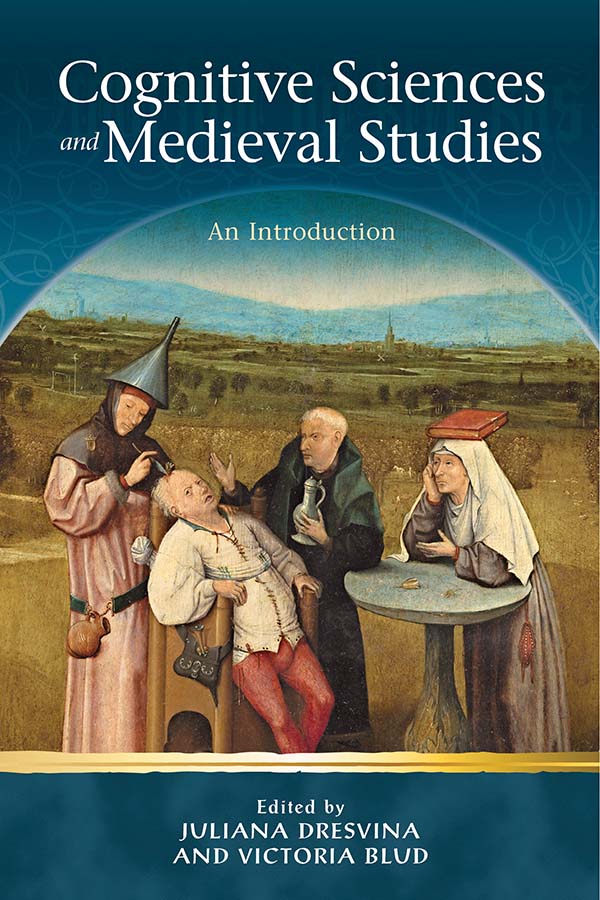Cognitive Sciences and Medieval Studies
An Introduction
Editor(s) Juliana Dresvina,Victoria Blud
Language: English
Genre(s): Medieval
Series: Religion and Culture in the Middle Ages
- November 2020 · 336 pages ·234x156mm
- · Hardback - 9781786836748
- · eBook - pdf - 9781786836755
- · eBook - epub - 9781786836762
With the rapid development of the cognitive sciences and their importance to how we contemplate questions about the mind and society, recent research in the humanities has been characterised by a ‘cognitive turn’. For their part, the humanities play an important role in forming popular ideas of the human mind and in analysing the way cognitive, psychological and emotional phenomena are experienced in time and space. This collection aims to inspire medievalists and other scholars within the humanities to engage with the tools and investigative methodologies deriving from cognitive sciences. Contributors explore topics including medieval and modern philosophy of mind, the psychology of religion, the history of psychological medicine and the re-emergence of the body in cognition. What is the value of mapping how neurons fire when engaging with literature and art? How can we understand psychological stress as a historically specific phenomenon? What can medieval mystics teach us about contemplation and cognition?
Introduction: Cognitive Science and Medieval Studies
Juliana Dresvina and Victoria Blud
I Questions of method
1. How Modular Are Medieval Cognitive Theories? - José Filipe Silva
2. An Unrealized Conversation: Medieval Mysticism and the Common Core Thesis - Ralph Hood Jr
3. Questions of Value: Brain Science, Aesthetics, and Art in the Neurohumanities - Matthew Rampley
II Case studies: histories of neuroscience, psychology and mental illness
4. Neuroscience and the Dialectics of History - Daniel Lord Smail
5. Medieval English Understanding of Mental Illness: Terminology and Symptoms In Comparison to Modern Mental Health Conditions - Wendy Turner
6. Attachment Theory for Historians of Medieval Religion - Julie Dresvina
III Case studies: reading texts and minds
7. ‘A Knot So Subtle and So Mighty’: On Knitting, Academic Writing and Julian of Norwich - Godelinde Perk
8. Making Up a Mind: ‘4E’ Cognition and the Medieval Subject - Victoria Blud
9. Cognitive Approaches to Affective Poetics in Early English Literature - Antonina Harbus
IV Case studies: approaching art and artefacts
10. Medieval Art History and Neuroscience: An Introduction - Nadia Pawelchak
11. Spoons, Whorls, and Caroles: How Medieval Artifacts Can Help Keep Your Brain on its Toes - Jeff Rider
Afterword: The Medieval Brain and Modern Neuroscience - John Onians
Author(s): Juliana Dresvina
Juliana Dresvina is a member of the History Faculty at the University of Oxford, teaching on late-medieval devotion and history of mentality to Middlebury College-CMRS Oxford Humanities Program.Author(s): Victoria Blud
Victoria Blud is a research associate in the Department of English and Related Literatures at the University of York, specialising in studies of gender, transgressive speech, emotion, cognition, and ideas about the body.

